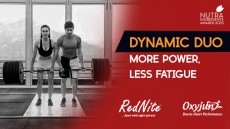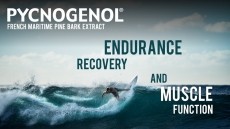The rise of exogenous ketones for athletic recovery
For Dr. Mark Evans, now a nutrition consultant with Glanbia Performance Nutrition, the effect of exogenous ketones on exercise metabolism, physical and cognitive performance was the focus of his PhD at Dublin City University.
He spoke with NutraIngredients-USA during the recent Sports & Active Nutrition Summit in San Diego, where he presented a concise overview on both the state of the science and the state of the market.
Ketones: The fourth fuel
Early research into exogenous ketones attempted to replicate the benefits of the ketogenic diet without changing what people eat: When the body goes into starvation mode because it doesn’t have enough carbohydrates (or glucose), it will then resort to burning its own fat reserves to make ketones, a process commonly understood as ketosis. This can occur during fasting or participating in lengthy periods of exercise.
Exogenously consumed ketones will put ketones directly into the bloodstream, bypassing the fat burning step that a ketogenic diet would require.
There are different types of ketogenic products in the market, with the initial research looking at ketone salts. The main ketone body researchers are interested in is beta-hydroxybutyrate (BHB), explained Dr. Evans, and BHB-salts are composed of the BHB molecule attached to a mineral salt, typically potassium, calcium and sodium. Those ingredients are powders, he said.
A lot of the research now is focusing on ketone monoesters, often referred to as ketone esters, and those are a little more complicated, Dr. Evans said. These substances, mostly found in liquid supplements, mimic the end state of ketosis where ketones appear in the blood.
While the science is advancing, the early adopters of these products were definitely ahead of the science at the start.
“Professional sport dragged the research along,” Dr. Evans said, adding that the science is now starting to catch up for the use of the ingredients in elite endurance sports. The early research focused on acute supplementation, with some reports indicating that the supplements could improve performance in cycling time trials by about 2%, he said.
“Now, the larger body of evidence is showing that maybe they don’t act as an acute performance tool, but there may be some scope as a recovery tool post-exercise,” Dr. Evans said.
And this has led to a rapid uptake in use in endurance sports, notably elite cycling.
For example, in a 2023 interview with NutraIngredients-USA, Frank Llosa, founder of KetoneAid, noted that nine out of 10 cycling teams competing in the Tour de France were taking his company’s ketone monoester-infused drinks. He told us that cyclists report it helps with their recovery when they consume the ketone ester product immediately after a race. In another clinical trial that mimicked a multi-week race where participants took ketone monoester daily for recovery, cyclists were 15% faster than a control group in the final time trial.
The cost issue
While the science is building, and acceptance in certain sports is growing, one of the challenges for the exogenous ketone sector in terms of wider acceptance is the cost involved in these products, Dr. Evans noted. While some of the ingredient forms are less expensive than others, the ketone salts still retail for $36 to $50 for just a few servings, while the ketone esters can range from $30 to $35 per serving.
“If they [the ketone players] really want to open it up to a mass market, then it [the cost] is something they’re really going to have to look at,” Dr. Evans said.
Watch the full interview above.















